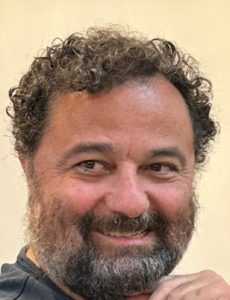Quantum randomness can be controlled by free will – Antoine Suarez – Summary
Quantum randomness can be controlled by free will
by Antoine Suárez
The assumption that human behavior is not completely determined by the past plays a key role in the way we behave in daily life and organize society through law. When I typewrite this article, I assume that I am governing the movements of my fingers through my free will.
This paper aims to show that quantum physics does not entail the presumed incompatibility of quantum randomness with order and control. Section II argues on the basis of the before-before experiment that quantum randomness can be controlled by unobservable in?uences from outside spacetime and, therefore, is compatible with freedom in principle: Both quantum randomness and free will, refer to agency which is not exclusively determined by the past.
A. QUANTUM RANDOMNESS CAN BE CONTROLLED BY UNOBSERVABLE INFLUENCES FROM OUTSIDE SPACETIME
Quantum mechanics predicts correlated outcomes in space-like separated regions for experiments using 2 particle entangled states.
There are two alternative ways of explaining these quantum correlations, depending on whether one assumes the freedom of the experimenter as an axiom or not.
the “freedom of the experimenter” is not something one can settle by experiment or computing, but is a matter of principle: you can either choose or reject it.
If you reject it, then you can explain things in a entirely (local or nonlocal) deterministic way:
you can choose the “Many Worlds” picture, which also is fully local deterministic everything that can happen does in fact happen, but in different worlds; even the feeling that you are ’someone’ is an illusion, because you cannot know “which ’you’ is you, and which ’you’ is a copy”. It is a merit of this picture to show that determinism implies the loss of personal identity.
If you accept the axiom of freedom on the part of the experimenter, then you are necessarily led to accept influences faster than light (nonlocal influences) between the apparatuses.
Moreover, the before-before experiment rules out the belief that physical causality necessarily is time ordered, so that an observable event (the effect) always originates from another observable event (the cause) occurring before in time. This experiment demonstrates that the nonlocal correlations have their roots outside of spacetime.
In quantum entanglement experiments (Figure 2) local randomness and nonlocal order appear inseparably united: A random event event A is nonlocally correlated according to statistical rules to another random event B, and additionally A is correlated to B, and not to any other events near B. This means that non pre-determined (“genuinely random”) local events can be controlled to generate nonlocal patterns (correlations) and, as the before-before experiment shows, the control happens from outside spacetime.
The before-before experiment demonstrates that immaterial influences can control randomness to produce nonlocal patterns. Thus, immaterial free will can control the random dynamics of the brain to produce meaningful communication and behavior, but has to pay for it with uncontrolled dynamics during sleep (no permanent conscious state). This constraint can also be formulated by stating that brain outcomes have to fulfil distributions imposed by neurophysiological parameters: statistical deviations after a certain amount of control (while waking) are corrected by further uncontrolled outcomes (while sleeping). Free will fits well with statistical laws of Nature like the quantum mechanical ones.
